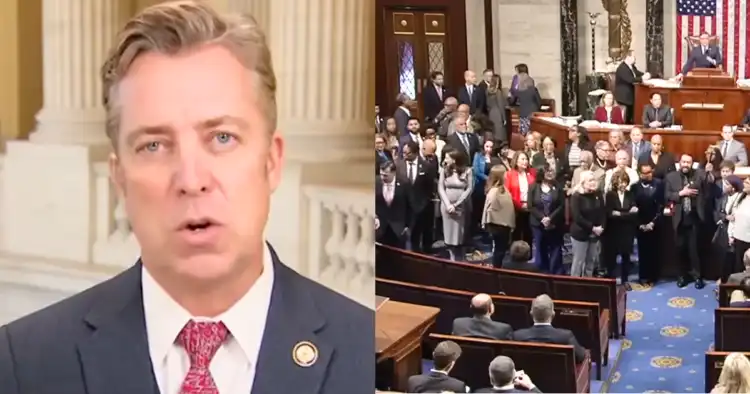The Department of Government Efficiency (DOGE), under the leadership of Elon Musk, has taken another major step in its cost-cutting mission by terminating a federal lease for a facility housing records from the Obama administration. Situated in Hoffman Estates, Illinois, the site was part of the National Archives and Records Administration’s (NARA) system for preserving presidential documents. The decision is part of DOGE’s broader strategy to trim government spending by eliminating leased spaces deemed unnecessary. According to Fox News, the agency has ordered the cancellation of nearly 750 leases, a move expected to save taxpayers approximately $468 million.
🚨 JUST IN: Elon Musk and DOGE have TERMINATED the lease on the Obama Presidential Library site in Chicago, per Fox
— Nick Sortor (@nicksortor) March 5, 2025
Barry’s gonna be BIG mad 🤣🔥 pic.twitter.com/ViCLved2EG
Although the Hoffman Estates facility was not officially designated as the Obama Presidential Library, it served as storage for around 25 million unclassified paper documents and 35,000 physical artifacts from Obama’s presidency. These materials are in the process of being digitized and will be relocated to a NARA facility in College Park, Maryland, by the end of the 2025 fiscal year. The site played a key role in preserving Obama-era records while the privately funded Obama Presidential Center is being built on Chicago’s South Side. Unlike previous presidential libraries, the Obama Foundation chose not to operate a NARA-managed archival facility at the center, breaking from the long-standing model where presidential records are stored on-site for public access and historical research.
Under Musk’s leadership, DOGE has taken an aggressive approach to downsizing government operations, focusing on efficiency and eliminating what it sees as excessive spending. Both President Donald Trump and Musk have promoted the idea of applying private sector management strategies to government functions, arguing that bloated federal expenditures lead to widespread inefficiencies. While NARA had already planned to vacate the facility by 2025, DOGE’s decision fast-tracks the process, further underscoring its cost-cutting priorities. Officials from NARA have reassured the public that the digitization of Obama-era documents remains on schedule and that accessibility will not be impacted. However, some historians and researchers have raised concerns that digital archives may not fully replace the value of physical records, especially when studying original documents and artifacts.
🚨 In 2011 Obama: "We don’t need to wait for Congress to in order to do something about wasteful spending that’s out there.."
— 🔥🇺🇸 KC 🇺🇸🔥 (@KCPayTreeIt) March 5, 2025
Obama created DOGE! Trump and Elon are modifying it to be more effective 🔥 pic.twitter.com/rzTl1RPnH0
The General Services Administration (GSA), which oversees federal leases, currently allocates over $91 million annually for approximately 2.4 million square feet of office space spread across 112 properties in the Chicago area, according to data from Trepp Inc. The ongoing efforts to shrink the federal leasing footprint are expected to continue beyond this round of closures. Tom Taylor, senior research manager at Trepp, indicated that more than a third of these leases could be terminated by year’s end, potentially cutting $30 million annually from local property owners’ revenue, as reported by Trending Politics.
With commercial real estate markets already struggling due to the rise of remote work, large-scale GSA lease cancellations could exacerbate office vacancy rates and property value declines. While some landlords depend on government leases for income, GSA contracts account for less than 1% of all office space in Chicago—a significantly smaller portion than in cities like Washington, D.C., and Kansas City, where federal operations are more concentrated. Still, the withdrawal of government tenants could place added financial strain on landlords already facing reduced demand for office space, TP reports.
Although these closures result in immediate cost savings, they also spark discussions about the future of government record-keeping and accessibility. As digitization continues to gain traction, agencies such as NARA may face increasing pressure to strike a balance between cost efficiency and historical preservation.
Meanwhile, DOGE’s broader objectives suggest that additional reductions in federal property holdings may be on the horizon as the administration continues its efforts to reevaluate government expenditures.





